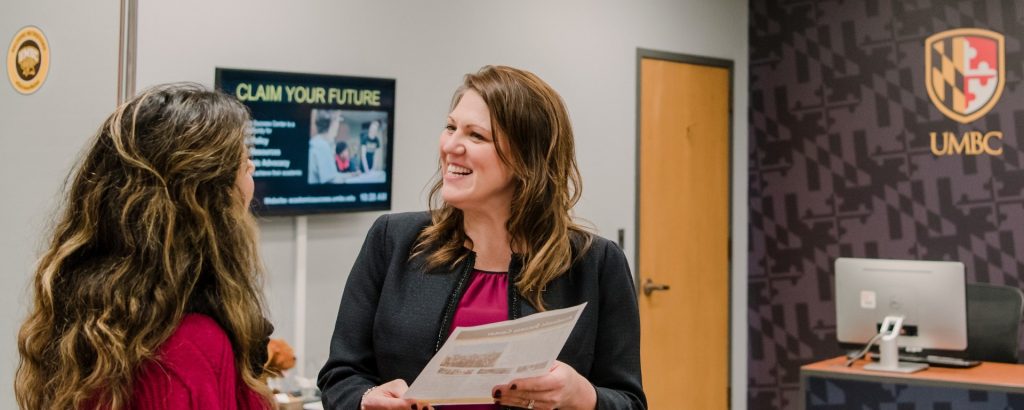
UMBC expands live online peer tutoring to include computing courses
When Amanda Knapp heard last fall from Anupam Joshi, professor and chair of computer science and electrical engineering (CSEE), that his department wanted to offer online tutoring to students in their courses, she was ready to help make it happen. COVID or no COVID, she says, “It just made sense.”
Knapp is associate vice provost and assistant dean of Undergraduate Academic Affairs, and she manages UMBC’s Academic Success Center (ASC). “We already had an established system in place and could provide the administration, training, staffing, and assessment,” she explains. “CSEE provided the funding and identified potential tutors for a variety of computer science courses, and we did the rest.”
Just a few months after the partnership began, it expanded to include courses in the information systems (IS) department. And this semester, tutors are supporting ten IS computing courses.
In total, the ASC’s new Computing Success Center now offers tutoring for 21 courses from across the College of Engineering and Information Technology (COEIT). And the center continues to grow, supported by COEIT Dean Keith J Bowman and Dean Katharine Cole, Undergraduate Academic Affairs.
Peer tutors help students of any major, from computing fields to the arts and life sciences, learn coding and other computing skills.
“The ethos of UMBC is to share knowledge and collaborate with others instead of being proprietary,” says Helena Mentis, associate professor of information systems. Mentis is COEIT’s associate dean of academic programs and learning, and one of the College leads on the partnership.
“At the end of the day,” she says, “our goal at UMBC is to ensure that there are multiple pathways for students to get the assistance they need to succeed and remove any barriers for access to help.”
You can read more about UMBC’s new Computing Success Center in this UMBC News article.
Adapted from a UMBC News article by Gregory J. Alexander and Dinah Winnick